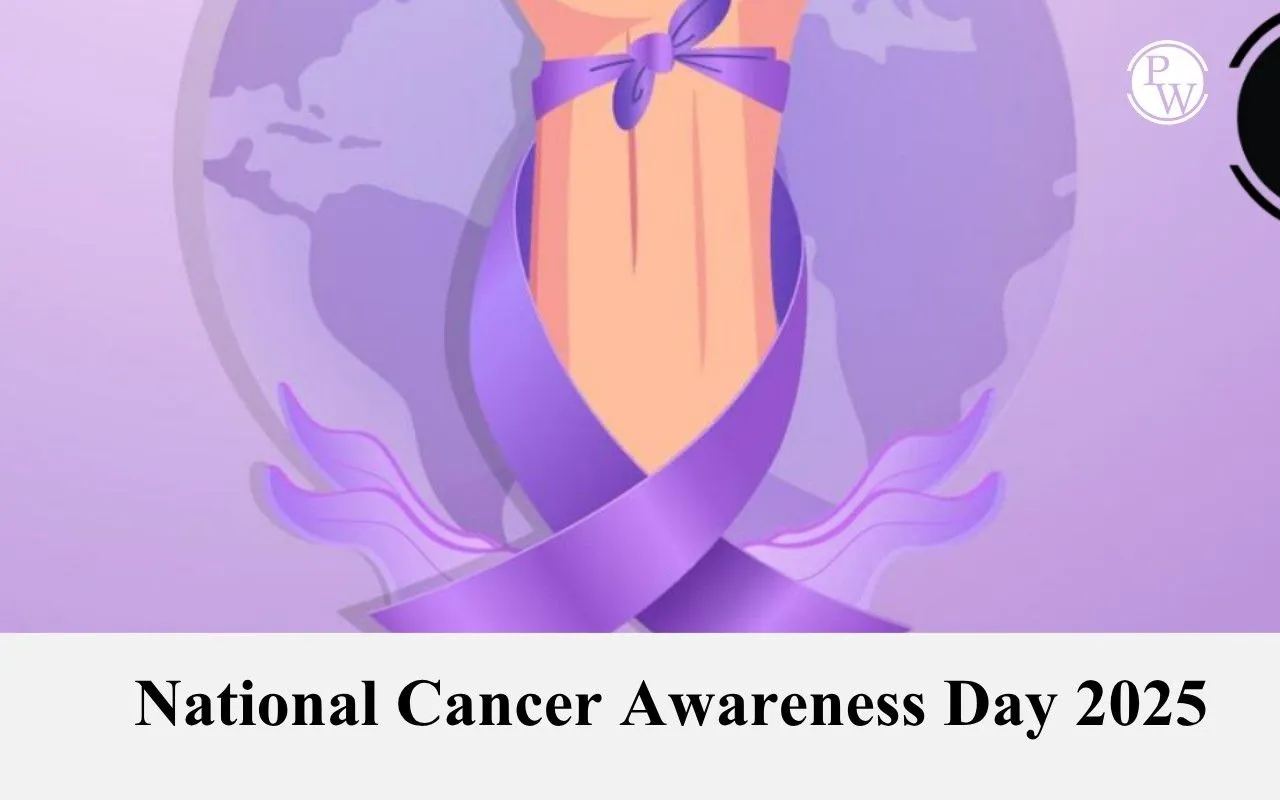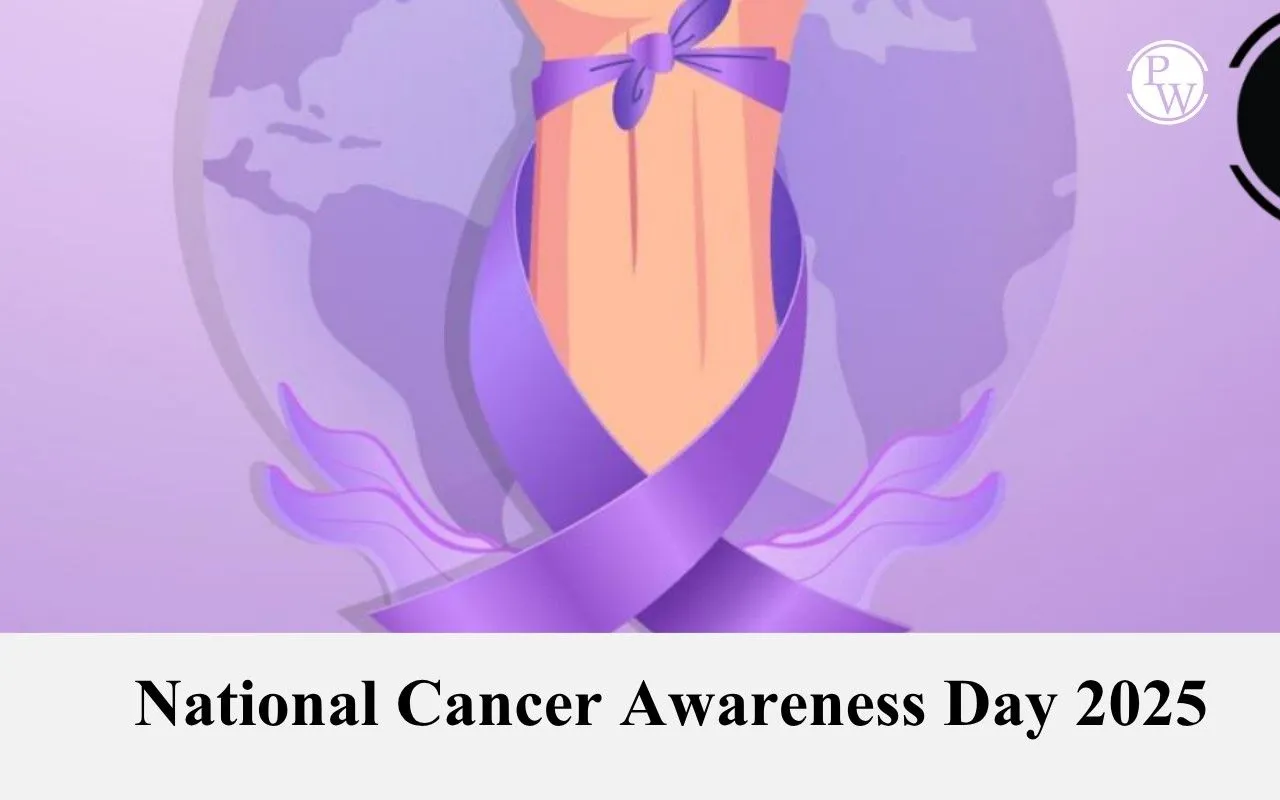

National Cancer Awareness Day 2025 is observed annually on November 7th in India to raise awareness among students and the general public about cancer prevention, early detection, and accessible treatment. This day plays a crucial role in educating communities about cancer risks, encouraging healthy lifestyle choices, and reducing stigma around the disease. For students, understanding and participating in this day is a meaningful way to contribute to a healthier future by spreading knowledge and promoting timely action against cancer.
National Cancer Awareness Day 2025 History and Importance
National Cancer Awareness Day, observed annually on November 7th in India, was first announced in 2014 by the Ministry of Health & Family Welfare under the leadership of then Union Health Minister Dr. Harsh Vardhan. The date commemorates the birth anniversary of Marie Curie, the twice Nobel Prize-winning scientist whose pioneering research on radioactivity laid the foundation for modern cancer treatments, especially radiation therapy.
The day holds great significance as it promotes awareness about cancer prevention, early detection, and timely treatment, highlighting that early diagnosis substantially improves survival rates and quality of life.
-
National Cancer Awareness Day aims to educate the public on cancer risk factors, encourage lifestyle changes such as quitting tobacco and adopting healthier habits, and reduce the social stigma surrounding the disease.
-
Various awareness campaigns, free screening drives, and educational programs are conducted nationwide to empower individuals with knowledge and motivate preventive health check-ups.
-
This observance serves as a reminder that while cancer remains a major health challenge, advances in science and timely intervention can save countless lives.
-
The day underscores the collective responsibility of society, healthcare providers, and policymakers to foster cancer awareness and improve care access, especially in underserved communities.
Why Early Detection is Crucial on National Cancer Awareness Day
Early detection of cancer significantly increases the chances of successful treatment and survival. Most cancers, when identified in their initial stages, can be treated effectively before they spread to other parts of the body. For example, breast cancer detected early can have a five-year survival rate as high as 99%, whereas late diagnosis drastically reduces survival chances. National Cancer Awareness Day emphasizes understanding early symptoms such as lumps, persistent cough, unexplained weight loss, or changes in skin to seek timely medical advice.
Common Types of Cancer to Watch For
In India, the most common cancers include breast cancer, cervical cancer, oral cancer, lung cancer, and colorectal cancer. National Cancer Awareness Day educates people about the warning signs of these cancers. For instance, breast cancer may show a lump or changes in breast shape, while cervical cancer can cause abnormal vaginal bleeding. Smoking-related lung cancer and tobacco-linked oral cancer can be screened through specific tests. Recognizing these common types aids in early intervention and better treatment outcomes.
Screening and Regular Check-ups Save Lives
Screenings play a vital role in preventing cancer or catching it early when it is most treatable. Recommended screening tests include mammograms for breast cancer starting at age 40, Pap smears and HPV tests for cervical cancer, colonoscopies for colorectal cancer after age 45, and low-dose CT scans for lung cancer in smokers above 50. National Cancer Awareness Day urges people, especially those with family history or risk factors, to undergo regular health check-ups and screenings.
Prevention: Small Changes, Big Impact
National Cancer Awareness Day also highlights ways to reduce cancer risks through lifestyle changes. Avoiding tobacco, limiting alcohol, eating a plant-based diet, maintaining a healthy weight, staying physically active, and protecting skin from sun exposure can lower the chances of developing cancer. Quitting tobacco products is particularly important since it is strongly linked with oral, lung, and other cancers prevalent in India.
National Cancer Awareness Day: A Call for Action
This day is not just about awareness but also encouraging people to take action — be it through self-examination, visiting healthcare professionals for screenings, or adopting healthier habits. Government programs like the National Programme for Prevention and Control of Cancer play a crucial role in promoting screening and treatment access at primary healthcare levels. Partnerships with hospitals and corporations also support cancer research and subsidized care.
